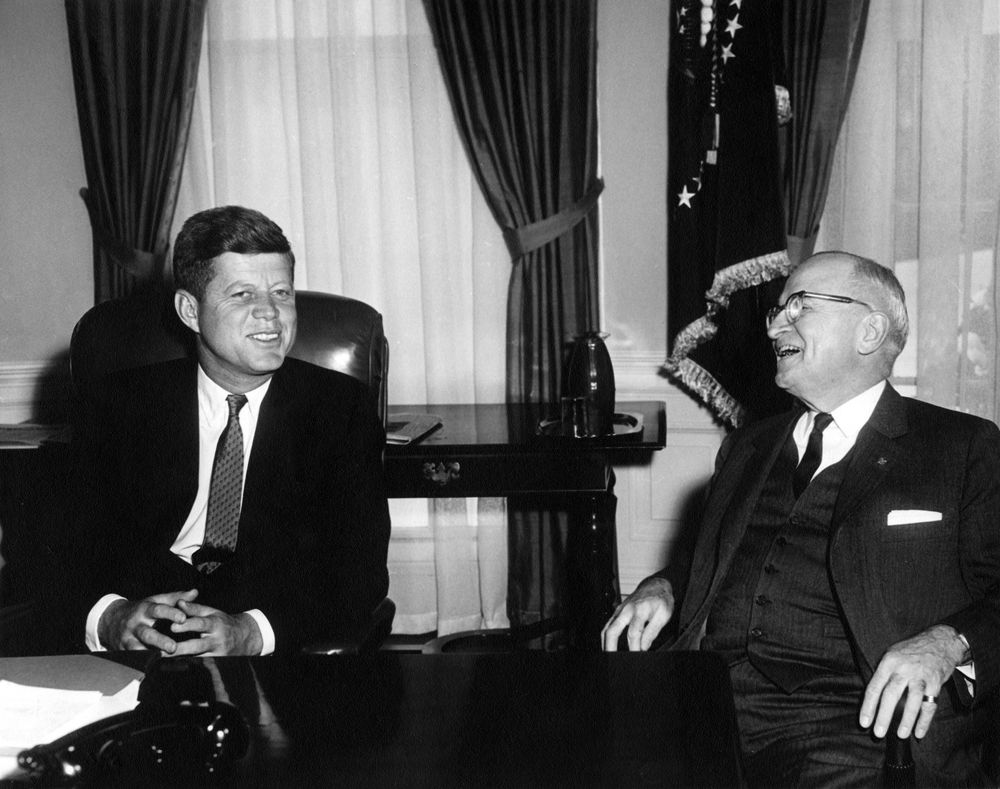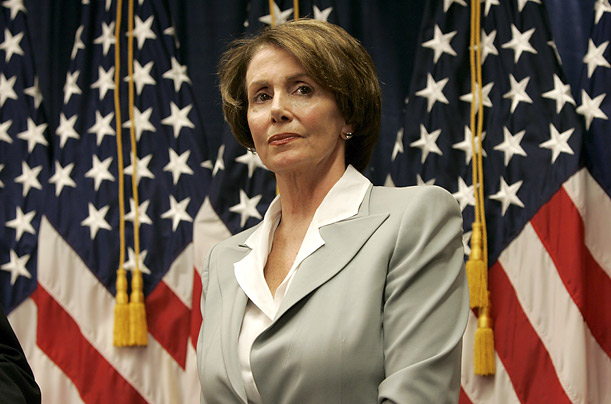
Democrats and Republicans have always disagreed about policy, but there was a time when the two parties weren’t as polarized as they are today. In my study of American history, the last Democrat president with whom I would have felt entirely comfortable was Grover Cleveland—and that goes a long way back.
Yet Democrats weren’t always as radical as they seem to be now. The change in my lifetime has been rather dramatic, and I’m sure many others can attest to that change also.

While I have my critiques of the administrations of Harry Truman and JFK, at least these two occupants of the Oval Office grasped the Soviet threat: Truman with the Marshall Plan and Berlin Airlift, for instance, and JFK with the Cuban Missile Crisis. Both believed in a strong defense as a cornerstone for America’s heritage of liberty. As Kennedy put it in his inaugural address:
Let every nation know, whether it wishes us well or ill, that we shall pay any price, bear any burden, meet any hardship, support any friend, oppose any foe to assure the survival and the success of liberty.
Then came the later 1960s with the divide over Vietnam that drove Lyndon Johnson out of the presidency. Those years also saw race riots and massive campus disturbances, along with police and protesters clashing at a disastrous Democrat convention in 1968. That all led to the beginnings of political correctness in the party: quotas of certain groups at the next convention, which crowned George McGovern as its standard-bearer. Crushing defeat followed, but the party was now more leftist than ever and less inclined to support a strong defense.

The party lurched ever more leftward in the 1980s and 1990s as its presidential wannabes began deserting some basic moral stances they once held, starting first with excusing abortion. The three pictured here—Richard Gephardt, Jesse Jackson, and Al Gore—as they vied for the Democrat nomination in 1988, suddenly decided they were now more enlightened on the abortion issue: it became a fundamental right of a woman over her own body. They had to set aside, of course, the fact that there is always another body involved as well.
The major shift was well underway, and the divide between Democrat and Republican became greater.

The new Democrat leadership that followed extended the cultural clash by first endorsing homosexuality as a legitimate alternative lifestyle. Politicians like Nancy Pelosi, the Clintons, and Barack Obama accused conservatives—and conservative Christians, in particular—of being narrow-minded bigots for not going along with the new morality. Those “reactionary” conservatives were telling a tall tale when they warned of a future acceptance of same-sex marriage. After all, those Democrat politicians promised, they believed in traditional marriage.
Smoke and mirrors, anyone?
Yet, with this new wave of representatives in Congress, we are seeing even the radical leaders being pushed to go further.

Alexandria Ocasio-Cortez has been quite accomplished in making herself well known, if not universally respected. The “author” of the Green New Deal and advocate of outright socialism has embarrassed the leadership at times with her pushiness, arrogance, and unsteady relationship with facts.
Rashida Tlaib, Muslim congresswoman from Michigan, burst onto the scene with a profanity-laced diatribe about impeaching President Trump. No apology offered for her lack of decorum.
Then there’s Ilhan Omar of Minnesota, whose antisemitic statements have caused further embarrassment to a party that has long stood by Israel.
What we are seeing now is an almost-complete radicalization of the Democrat party. No one dare run for national office and promote the pro-life position. You can search far and wide before you will find any Democrat taking a stand for the lives of the innocent pre-born. At least three Democrat-dominated states have, for all practical purposes, endorsed infanticide. More states will follow.
Republicans, cowed by the changing culture on homosexuality, offer no real defense of Biblical morality. Meanwhile, Democrats celebrate diversity by wanting the LGBT+ agenda to become America’s agenda. In other words, no genuine diversity will be tolerated; you must bow to the new empire.
As I contemplate all of this, God just keeps directing me back to priorities. My first priority is to make sure my heart is His totally and that I be the best witness I can of His truth and His redeeming love. I cannot change the culture, but I can be part of that company of salt and light that might—just might—help shift the culture back, closer to a Biblical standard.

I think I understand Whittaker Chambers better now. Upon leaving the communist underground and returning to the world outside of communism, he told his wife that they were leaving the winning world for the losing one. Most people want to be on the winning side, but Chambers went on to say, “But nothing has changed my determination to act as if I were wrong—if only because, in the last instance, men must act on what they believe to be right, not on what they believe probable.
I will continue to do what I believe to be right, regardless of the consequences. However, I do have this promise: in the end, at the Last Judgment, I will be on the winning side.
